Covered CA rules on
“Lawfully Present” Undocumented, Immigration Status, Residency 45 CFR 152.2

Introduction
You must be Lawfully present – check this entire page for information and details of what “lawful presence” means, in the USA to get tax credits– Subsidies in Covered CA.
If you want coverage without subsidies, you can purchase direct from an Insurance Company, no extra charge for us to help you with that, with the only requirement being that you reside in CA, even if you don’t have legal status. You might also check out International Travel Policies.
There is no charge for our help, when you appoint us as your agent by using the enrollment links in this website or using “find local help” in the upper right hand portion of the Covered CA Online Application.
We are not immigration attorney’s and can’t help you with that. If you have the documents, proving lawful status, we can help you get health insurance.
Learn More ===>
- Covered CA – Accepted Documents to prove lawful status
- How to find receipt # on green card
- CA Mandate Penalty?
- Proof of Citizenship or US National Status Covered CA
- FAQ Lawful Status
- Covered CA Information for Immigrants

- Tax Guide for Aliens Publication # 519
- Special Enrollment when it’s not Open Enrollment, like a change in lawful presence status
- List of Individuals with “Lawfully Present” Status for Eligibility and Enrollment Purposes in the Covered CA Exchange Individual Market
- covered ca.com/documents-to-confirm-eligibility/immigration-status/
- Category of Lawful Presence and Acceptable Documents*
- Examples of Commonly Used Immigration Documents Visual
- Immigration Resources
- Our webpage on proof of identity and income
- Covered CA Immigration FAQ’s
- covered ca.com/documents-to-confirm-eligibility/immigration-status/
- Lawyers Guide to determine citizenship in Criminal Cases
- Federal 8 U.S. Code § 1641 – Definitions for Medi Cal – Medicaid
- Overview of Immigrant Eligibility for Federal Programs – National Immigration Law Center
- THE AFFORDABLE CARE ACT: COVERAGE IMPLICATIONS AND ISSUES FOR IMMIGRANT FAMILIES
- Chart comparing Immigration and Covered CA with Subsidies – Western Poverty Law
- USCIS Policy Manual
- Employers should prepare for Immigration Raids
- Trump confirms deportation strategy will include national emergency declaration and military
- Trump ally explains how mass deportations could work
- Magdeburg Christmas market attack: Aaron Cohen uncovers the shocking identity of the attacker, a Saudi fugitive who manipulated Germany’s asylum system to evade justice. Find out how ignored warnings, political correctness, and weak policies allowed this tragedy—and what it means for U.S. security. VIDEO *
- organizations on this list are able to provide assistance regarding public charge.
- Employers Face Looming Immigration Changes Under Trump Administration Learn More >>> SHRM
- Open Enrollment Tool Kit
- Enrollment Dashboard Guide for Certified Enrollers
- FPL Chart
- Strike & Lockout
- QLE Major Life Changes
- Documents to Confirm Eligibility
- Income Section
- Certified Agent Briefing
- DACA Toolkit
- social press kit.com/lets-talk-health
- Daily Summary Notices Broker Portal
- Medi Cal to Covered CA
- 2024 End of the year briefing
- Forms - Including Paper Application
- 1095 toolkit
- how to generate and print plan summaries
Trump Big Beautiful Bill Changes
Cuts for Lawfully Present Immigrants
The GOP plan could cause at least hundreds of thousands of immigrants who are lawfully present — including asylum-seekers, victims of trafficking, and refugees — to lose their ACA marketplace coverage by cutting off the subsidies that make premiums affordable. The restriction won’t apply to green-card holders.
Because the immigrants who will lose subsidies under the legislation tend to be younger than the overall U.S. population, their exit would leave an older, sicker, and costlier population of marketplace enrollees, further pushing up marketplace premiums, according to marketplace directors in California, Maryland, and Massachusetts and health analysts.
Taking health care access away from immigrants living in the country legally “will do irreparable harm to individuals we have promised to protect and impose unnecessary costs on local systems already under strain,” John Slocum, executive director of Refugee Council USA, an advocacy group, said in a statement.
The bill reflects the Trump administration’s restrictive approach to immigration. But because it ran afoul of Senate rules, the legislation doesn’t include a proposal that would have reduced federal Medicaid payments to states such as California that use their own money to cover immigrants without legal status. KFF *
All our plans are Guaranteed Issue with No Pre X Clause
Quote & Subsidy #Calculation
There is No charge for our complementary services
Watch our 10 minute VIDEO
that explains everything about getting a quote
- Our Quote Engine Takes all the complexity out of using pencil and paper to figure out the premiums per the Obamacare/ACA rules under CFR §1.36B-3 *
- Get more detail on the Individual & Family Carriers available in CA
#Covered CA Certified Agent
No extra charge for complementary assistance
- Get Instant Health Quotes, Subsidy Calculation & Enroll
- Appoint us as your broker
- Get Instant Health Quotes, Subsidy Calculation & Enroll
- Videos on how great agents are
ICE Raids
We are NOT attorneys!!!
We are NOT political!
All laws must be obeyed. We cannot advise or suggest anything unlawful!
Rapid Response Hotlines
- Immigrant Defenders Law Center (for detained family members):
(213) 833-8283 — Monday to Friday, 9am–4pm PT (voicemail available outside hours) - CHIRLA Legal Triage Information Line:
(213) 201-3797 — Tuesdays 9am–1pm and Thursdays 1pm–5pm - CHIRLA Immigrant Assistance Line:
(888) 624-4752 — Monday to Friday, 9am–5pm
📚 Know Your Rights & Emergency Prep Resources
- How to Find a Detained Family Member / Cómo Puedes Encontrar a Alguien Detenido
- Know Your Rights at Home and in the Workplace / Derechos en el Hogar y el Trabajo
- Know Your Rights: ICE Arrests at Immigration Courthouses (Bilingual)
- Know Your Rights: Places of Worship / Conozca Sus Derechos: Lugares Religiosos
- How to Prepare Your Family for an Immigration Emergency / Cómo Preparar a Su Familia en Caso de Emergencia por Inmigración
🖥️ Additional Resources
- ImmDef Resource Hub — includes a Family Preparedness Plan
- CHIRLA Resource Hub – for additional information about your rights.
- immigrant guide.ca.gov
- Trump ally explains how mass deportations could work
- National Emergency – Military Learn More LA Times *
Lawful Presence
CA Residency Guidelines #FTB1031 2023
- See our webpage on lawful presence & public charge
- A California resident is one who is in California for other than a temporary or transitory purpose; or Domiciled in California, but outside California for a temporary or transitory purpose. (ftb.ca.gov).
- Amount of time you spend in California versus amount of time you spend outside California;
- Location of your spouse and children;
- Location of your principal residence;
- Where your driver's license was issued;
- Where your vehicles are registered;
- Where you maintain your professional licenses;
- Where you are registered to vote;
- Location of the banks where you maintain accounts;
- Location of your doctors, dentists, accountants, and attorneys;
- Location of the church, temple or mosque, professional associations, or social and country clubs of which you are a member;
- Location of your real property and investments;
- Permanence of your work assignments in California; and
- Location of your social ties.
-
In using these factors, it is the strength of your ties and closest connections not just the number of ties, that determines your residency (ftb.ca.gov/)
- Sanjiv Gupta CPA reviews rules related to residency in California
Technical and Research Resources
- Covered CA Q & A on Immigration Status
- Health Care.gov on immigrants
- Coverage and Issues for Immigrant Families – aspe.hhs.gov (pdf)
- Attorney Guide to determine Citizen Status in Criminal Cases
- Covered CA Webinar on verification of residency Proposed Regulations 5.2013
- immigration policy.org
- What if you are not lawfully present and you try to apply for coverage? Will it be reported to INS?
- FAQ’s Kaiser Foundation kff.org/immigrants
- New Obama Immigration may allow those to get Medi-Cal californiahealthline.org/2014/11/21
- 4 page – Immigration Status and Covered Ca hbex.coveredca.com
- For purposes of this part the following definitions apply:
- Creditable coverage means coverage of an individual as defined in section 2701(c)(1) of the Public Health Service Act as of March 23, 2010 and 45 CFR 146.113(a)(1).
- Enrollee means an individual receiving coverage from a PCIP established under this section.
Lawfully present means
- (1) A qualified alien as defined in section 431 of the Personal Responsibility and Work Opportunity Act (PRWORA) ( 8 U.S.C. 1641);
- (2) An alien in nonimmigrant status who has not violated the terms of the status under which he or she was admitted or to which he or she has changed after admission;
- (3) An alien who has been paroled into the United States pursuant to section 212(d)(5) of the Immigration and Nationality Act (INA) ( 8 U.S.C. 1182(d)(5)) for less than 1 year, except for an alien paroled for prosecution, for deferred inspection or pending removal proceedings;
- (4) An alien who belongs to one of the following classes:
- (i) Aliens currently in temporary resident status pursuant to section 210 or 245A of the INA ( 8 U.S.C. 1160 or 1255a, respectively);
- (ii) Aliens currently under Temporary Protected Status (TPS) pursuant to section 244 of the INA ( 8 U.S.C. 1254a), and pending applicants for TPS who have been granted employment authorization;
- (iii) Aliens who have been granted employment authorization under 8 CFR 274a.12(c)(9), (10), (16), (18), (20), (22), or (24);
- (iv) Family Unity beneficiaries pursuant to section 301 of Public Law 101-649 as amended;
- (v) Aliens currently under Deferred Enforced Departure (DED) pursuant to a decision made by the President;
- (vi) Aliens currently in deferred action status;
- (vii) Aliens whose visa petitions have been approved and who have a pending application for adjustment of status;
- (5) A pending applicant for asylum under section 208(a) of the INA ( 8 U.S.C. 1158) or for withholding of removal under section 241(b)(3) of the INA ( 8 U.S.C. 1231) or under the Convention Against Torture who has been granted employment authorization, and such an applicant under the age of 14 who has had an application pending for at least 180 days;
- (6) An alien who has been granted withholding of removal under the Convention Against Torture; or
- (7) A child who has a pending application for Special Immigrant Juvenile status as described in section 101(a)(27)(J) of the INA ( 8 U.S.C. 1101(a)(27)(J)).
- (8)Exception. An individual with deferred action under the Department of Homeland Security’s deferred action for childhood arrivals process, as described in the Secretary of Homeland Security’s June 15, 2012, memorandum, shall not be considered to be lawfully present with respect to any of the above categories in paragraphs (1) through (7) of this definition.
- Out-of-pocket costs means the sum of the annual deductible and the other annual out-of-pocket expenses, other than for premiums, required to be paid under the program.
- Pre-Existing condition exclusion has the meaning given such term in 45 CFR 144.103.
- Pre-Existing Condition Insurance Plan (PCIP) means the temporary high risk health insurance pool plan (sometimes referred to as a “qualified high risk pool”) that provides coverage in a State, or combination of States, in accordance with the requirements of section 1101 of the Affordable Care Act and this part. The term “PCIP program” is generally used to describe the national program the Secretary is charged with carrying out, under which States or non-profit entities operate individual PCIPs.
- Resident means an individual who has been legally domiciled in a State.
- Service Area refers to the geographic area encompassing an entire State or States in which PCIP furnishes benefits.
- State refers each of the 50 States and the District of Columbia.
- [ 75 FR 45029, July 30, 2010, as amended at 77 FR 52616, Aug. 30, 2012]
8 US Code §1641 Definitions
(b) Qualified alien For purposes of this chapter, the term “qualified alien” means an alien who, at the time the alien applies for, receives, or attempts to receive a Federal public benefit, is—
(c) Treatment of certain battered aliens as qualified aliensFor purposes of this chapter, the term “qualified alien” includes—
(B) has been approved or has a petition pending which sets forth a prima facie case for—
(A)resides in the same household as a parent who has been battered or subjected to extreme cruelty in the United States by that parent’s spouse or by a member of the spouse’s family residing in the same household as the parent and the spouse consented or acquiesced to such battery or cruelty, but only if (in the opinion of the agency providing such benefits) there is a substantial connection between such battery or cruelty and the need for the benefits to be provided; and
[1] So in original. The semicolon probably should be a comma.
[2] So in original. The period probably should be a comma.[3] So in original. The semicolon probably should be “, or”.
Medi Cal Information
Can an illegal immigrant buy health insurance in Covered CA?
Outside of Covered CA?
Can they get subsidies?
- Bill pending for CA Covered CA to request permission from the Federal Government. This still won’t give APTC – subsidies to illegal immigrants. CA HealthLine 6.10.2016 SB 10 Covered CA SB 4 Medi-Cal See below – illegal immigrants can buy coverage now through an agent or direct from the Insurance Company.
Consumer Resources
- Citizenship & Immigration Services uscis.gov
- Publication 519 US Tax Guide 1040 for Aliens
- What you need to know – Covered CA 1 page pdf
- nilc.org/lawfullypresent/ National Immigration Law Center
- Western Poverty Law Center – Guide for Low Income CA to get coverage
- Here are samples of acceptable documents that Covered CA will accept as proof ♦
- If you do NOT qualify, you can try an International Policy
- Covered CA Application ♦ 7 Page Worksheet to complete ONLINE Application
- Covered CA letter to CMS on new rules..?? 4/11/2025
#My Medi-Cal
How to get the Health Care
You Need
24 pages
Smart Phones - try turning sideways to view pdf better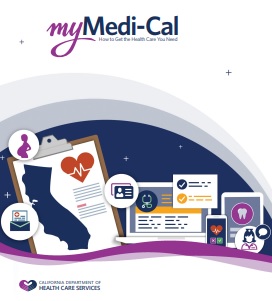
-
- More explanation

- Enroll with Benefits Cal
- What is Medi Cal - VIDEO
-
How to VIDEO
-
Medi-Cal Managed Care HMO – Health Care Options
- Benefits Cal is a one-stop-shop to apply for...
- Cal Fresh
- Ages 26 through 49 Adult Full Scope Medi-Cal Expansion regardless of immigration status
- Cal WORKs
- Medi-Cal
- CMSP (County Medical Services Program)
- Disaster Cal Fresh
- GA/GR (General Assistance and General Relief )
- Briefing — Medi-Cal Explained: An Overview of Program Basics
- chcf.org/medi-cal-explained/
- #BenefitsCal is a one-stop-shop to apply for...
- Medi-Cal
- County Medical Services Program (CMSP),
- Food Assistance - Cal Fresh (formerly known as Food Stamps)
- How to use Eat Fresh.org VIDEO
- Cooking & Nutrition
- California Work Opportunity and Responsibility to Kids (CalWORKs) or check their other website
- Medi-Cal
-
Here you can review and choose the HMO that you want to deliver your Medi-Cal health Care.
-
BIC Benefits Identification Card
What happens if you have a severe chronic condition or major accident, you can’t qualify for Medi-Cal as you are not lawfully present, must a hospital treat you if you show up in the ER Emergency Room?
You could get deported!
In an emergency, hospitals, by law – EMTALA – must treat any patient in the U.S. until he or she is stabilized , regardless of the patient’s immigration status or ability to pay.
Yet, when it comes time for the hospitals to discharge these patients, the same standard doesn’t apply. Though hospitals are legally obligated to find suitable places to discharge patients (for example, to their homes, rehabilitation facilities or nursing homes), their insurance status makes all the difference. After reaching the patient’s family in Mexico, and discussing issues with the Mexican consulate, the case manager began making travel arrangements to a rehabilitation hospital in Mexico. Medical air transport to another country is an expensive proposition — roughly $50,000, depending on the equipment needed and the distance to the receiving facility in the patient’s home nation. From the hospital’s point of view, it was easy to see that this large one-time expense would be worthwhile. The transfer to Mexico would put a stop to the indefinite, uncompensated costs of continued hospitalization. Further, the transfer would open up the patient’s bed to a new (and presumably insured) patient. NPR 4.9.2016 *
Some hospitals have been deporting illegal immigrants even though the U.S. government is the only authority that can perform this action. Medical repatriation is considered a human rights violation mainly because many of these hospitals act as “unauthorized immigration officers.” Medical news today 4.23.2014 * Forbes 2.26.2018 *
Public Charge USCIS * Some places where undocumented can go US News 11.2.2016 *
Links & Resources
- Our page on ER’s having to treat you till your stabilized.
- News report of hospital sending uninsured patient back to his country * Wikipedia *
- Hospitals ‘Deport’ Sick, Undocumented Immigrants VIDEO
FAQ
Medicare – No legal resident
- Question I’m 65 now and have worked and paid taxes into Medicare for 50 years. I’m not lawfully present. Can I still enroll in Medicare and not risk getting deported?
- Answer I’m not an immigration attorney. I don’t see how though that taking Medicare, that you’ve paid into would be considered a Public Charge.
- Somewhere else, we looked up about Medicare and not being lawful…. You can’t get Medicare if you are not legal.
- For purposes of determining inadmissibility, “public charge” means an individual who is likely to become primarily dependent on the government for subsistence, as demonstrated by either the receipt of public cash assistance for income maintenance or institutionalization for long-term care at government expense.
- What happens to benefit payment if a beneficiary is in the U.S. but is not a U.S. citizen or lawfully present alien?
• Payment to a claimant entitled to monthly title II - ***Disabilty SSA.Gov ***** Disability Benefits.org
- and title XVIII
- ***Medicare A & B Very Technical SSA.gov ******** Medicare & You
- benefits who meets all factors of entitlement will be suspended for any month that he/she is in the U.S. but has not established his/her U.S. citizenship/lawful presence for a full calendar month.
- • Payment of monthly title II and title XVIII benefits for periods of retroactive entitlement that fall prior to 12/1/96 will be suspended if the title II and title XVIII application was filed 12/1/96 or later.
- • Payments to a title II and title XVIII beneficiary suspended retroactively for failing to establish U.S. citizenship or lawful presence are overpayments subject to the rules of due process. Action to recover the overpaid amount will be taken in accordance with normal recovery procedures. The overpaid person must be given notice of the overpayment, the proposed recovery action, and the right to reconsideration, waiver, personal conference, or a different rate of adjustment (or refund by installment). (See GN 02201.001 for an explanation of processing overpayments.)
- • Section 5561 of the Balanced Budget Act (BBA) prohibits payment for Medicare services rendered to an alien who is not lawfully present in the U.S. It is important to differentiate between the U.S. lawful presence requirement prohibiting “payment” for Medicare services rendered to an alien who is not lawfully present in the U.S. and policy in HI 00801.191D.2. indicating that there is no U.S. residency requirement for determining Medicare “eligibility.” Process a Medicare claim, including an End-Stage Renal Disease (ESRD) claim if all factors of entitlement are met, but the U.S. lawful present requirement is not met. CMS is responsible for not paying Medicare services rendered to an alien who is not lawfully present in the U.S. secure.ssa.gov
H I S T O R I C A L
#DACA cannot get Covered CA
DACA Deferred Action for Childhood Arrivals (DACA)

- DACA No longer available for Covered CA Learn More >>>> Covered CA * FAQ *
- Email us for alternate plans [email protected] Get Quotes
- The LAPD has immigrant officers protected by DACA. Could Trump try to deport them? Learn More >>> LA Times *
- DACA banned in 19 states but OK in California! Read More >>> KFF.org
- DACA health insurance options will include exchange enrollment, eligibility for income-based premium subsidies
- DACA recipients are able to sign up for Obamacare for the first time
- Covered California starts offering health care to DACA immigrants. Will Trump’s win deter them?
- Covered CA FAQ’s
- Covered California starts offering health care to DACA immigrants. Will Trump’s win deter them? Learn More Cal Matters *
- USCIS.Gov DACA FAQ’s
- Mexico preparing for those deported from USA – Smart Phone App Read More LA Times 1/8/2025 *
- DACA Deferred Action for Childhood Arrivals (DACA) will be considered lawfully present for Covered CA and BHP Basic Health Program (I’m not sure if CA has this option) coverage and, if you meet all other eligibility requirements, will be eligible to enroll in a QHP Qualified Health Plan through the Covered CA with financial assistance such as APTC Subsidies and CSRs Enhanced Silver 73, 87 & 94 or a BHP. Read more >>> CMS.Gov *
- Judge orders end to DACA LA Times 7.16.2021
- kff health news.org/15-gop-led-states-sue-biden-admin-over-health-coverage-for-dreamers/
- Agent & Broker Toolkit
#Public Charge?
- The 2019 Public Charge Final Rule is no longer in effect, and DHS will partner with federal agencies to ensure impacted individuals are aware. USCIS.Gov * Covered CA *
- Starting December 23, 2022, the federal government will use a new public charge regulation that adds important protections for immigrants who get public benefits. Read on for the latest information.
- Biden Administration Unwinds Trump-Era ‘Public Charge’ Policy For Immigrants
Green card applications will no longer be impacted by a person's use of government-funded services like Medicaid or SNAP. - The revised final rule, issued by the Department of Homeland Security on Thursday, formally eases health care access for noncitizen immigrants. The Biden administration had previously stopped enforcement of the Trump-era policy. Learn More Kaiser Health News
- Starting December 23, 2022, the federal government will use a new public charge regulation that adds important protections for immigrants who get public benefits. Read on for the latest information. Learn More >>> Health Consumer Alliance *
- Public Charge Provider List
- What Immigrant Sponsors Should Know Before Signing Form I-864 Affidavit of Support Learn More Nolo *
- Public Charge: In general, applying for health insurance coverage through Covered California and receiving help to pay for a Covered California health plan or receiving low- or no-cost coverage through Medi-Cal, will not make an individual a “public charge” – it will not affect your immigration status, chances of becoming a lawful permanent resident, or becoming a naturalized citizen.
- The exceptions are if the individual receives long-term care in a nursing home or other facility paid for by the government, or does not tell the truth on the application. Covered CA FAQ *
- The Federal Government has issued a final public charge rule, which limits federal immigration officials’ ability to consider receipt of public benefits in granting individuals entry into the United States or when they apply to become lawful permanent residents (also known as green card holders).
- Federal Register 100 pages
- Public Charge Guide - Keep Your Benefits .org
- Covered California Fact Sheet and Talking Points
- HealthCare.Gov: Health Coverage for Immigrants
- National Immigration Law Center: Top 5 Things to Know About Public Charge
- Final Rule Inadmissibility on Public Charge Grounds 8 CFR Parts 103, 212, 213, 214, 245 and 248
- Ways to get around this rule or mitigate it?
- Organizations that can help assist you
- individuals seeking an immigrant visa must prove that they will obtain health insurance coverage within 30 days of entry in the United States or be able to pay for ‘reasonably foreseeable medical costs.’ Health Affairs.org *
- Special Enrollment when it's not Open Enrollment
- Public Charge Rule Explained VIDEO
- New Trump rules could deny green cards to immigrants on public assistance LA Times 8.12.2019
- Trump Administration Moves To Penalize Immigrants For Using Government Benefits NPR 8.20.2018
- Three in 10 Adults in California Immigrant Families with Low Incomes Avoided Safety Net Programs in 2020 Urban.org Research Report 47 pages
- Governor Newsom Signs Into Law First-in-the-Nation Expansion of Medi-Cal to Undocumented Californians Age 50 and Over CA.Gov
- A look at the legal implications of the Form I-864 Affidavit of Support that U.S. sponsors must fill out for immigrating family members in order to demonstrate they won't become public charges.
- organizations on this list are able to provide assistance regarding public charge.
Immigrants to USA must have Health Insurance or prove a huge bank account
President Trump signed a proclamation late Friday 10.4.2019 barring legal immigrants who cannot prove they will have “approved health care coverage” or the means to pay for it within 30 days of their arrival to the United States. Politico *
Judges Ruling Blocks this Proclamation KTLA * Politico *
Trump said uninsured individuals are a burden on the health care industry and U.S. taxpayers.
“Immigrants who enter this country should not further saddle our health care system, and subsequently American taxpayers, with higher costs,” Trump declared.
Beginning Nov. 3, only immigrants covered by approved health insurance or those who can show they can pay for “reasonably foreseeable medical costs” will be allowed entry into the U.S.
The announcement affects immigrants applying for visas from overseas. It doesn’t apply to non-citizen children of U.S. citizens. Refugees and asylum-seekers are also exempt.
However, it would apply to the spouses and parents of U.S. citizens and the immediate family members of lawful permanent residents. NPR *
Section 212(f) of the Immigration and Nationality Act, which grants the president authority to declare certain migrants ineligible for entry because it “would be contrary to the national interest” and “detrimental to the interests of the United States.” Washington Post *
Presidential Proclamation on the
Suspension of Entry of Immigrants
Healthcare providers and taxpayers bear substantial costs in paying for medical expenses incurred by people who lack health insurance or the ability to pay for their healthcare. Hospitals and other providers often administer care to the uninsured without any hope of receiving reimbursement from them. The costs associated with this care are passed on to the American people in the form of higher taxes, higher premiums, and higher fees for medical services. In total, uncompensated care costs — the overall measure of unreimbursed services that hospitals give their patients — have exceeded $35 billion in each of the last 10 years. These costs amount to approximately $7 million on average for each hospital in the United States, and can drive hospitals into insolvency. Beyond uncompensated care costs, the uninsured strain Federal and State government budgets through their reliance on publicly funded programs, which ultimately are financed by taxpayers.
Beyond imposing higher costs on hospitals and other healthcare infrastructure, uninsured individuals often use emergency rooms to seek remedies for a variety of non-emergency conditions, causing overcrowding and delays for those who truly need emergency services. This non-emergency usage places a large burden on taxpayers, who reimburse hospitals for a portion of their uncompensated emergency care costs.
While our healthcare system grapples with the challenges caused by uncompensated care, the United States Government is making the problem worse by admitting thousands of aliens who have not demonstrated any ability to pay for their healthcare costs. Notably, data show that lawful immigrants are about three times more likely than United States citizens to lack health insurance. Immigrants who enter this country should not further saddle our healthcare system, and subsequently American taxpayers, with higher costs.
The United States has a long history of welcoming immigrants who come lawfully in search of brighter futures. We must continue that tradition while also addressing the challenges facing our healthcare system, including protecting both it and the American taxpayer from the burdens of uncompensated care. Continuing to allow entry into the United States of certain immigrants who lack health insurance or the demonstrated ability to pay for their healthcare would be detrimental to these interests.
NOW, THEREFORE, I, DONALD J. TRUMP, by the authority vested in me by the Constitution and the laws of the United States of America, including sections 212(f) and 215(a) of the Immigration and Nationality Act (8 U.S.C. 1182(f) and 1185(a)) and section 301 of title 3, United States Code, hereby find that the unrestricted immigrant entry into the United States of persons described in section 1 of this proclamation would, except as provided for in section 2 of this proclamation, be detrimental to the interests of the United States, and that their entry should be subject to certain restrictions, limitations, and exceptions. I therefore hereby proclaim the following:
Section 1. Suspension and Limitation on Entry.
(a) The entry into the United States as immigrants of aliens who will financially burden the United States healthcare system is hereby suspended and limited subject to section 2 of this proclamation. An alien will financially burden the United States healthcare system unless the alien will be covered by approved health insurance, as defined in subsection (b) of this section, within 30 days of the alien’s entry into the United States, or unless the alien possesses the financial resources to pay for reasonably foreseeable medical costs.
(b) Approved health insurance means coverage under any of the following plans or programs:
(i) an employer-sponsored plan, including a retiree plan, association health plan, and coverage provided by the Consolidated Omnibus Budget Reconciliation Act of 1985;
(ii) an unsubsidized health plan offered in the individual market within a State;
So, Covered CA with subsidies, won’t cut it.
(iii) a short-term limited duration health policy effective for a minimum of 364 days — or until the beginning of planned, extended travel outside the United States;
(iv) a catastrophic plan;
(v) a family member’s plan;
(vi) a medical plan under chapter 55 of title 10, United States Code, including coverage under the TRICARE program;
(vii) a visitor health insurance plan that provides adequate coverage for medical care for a minimum of 364 days — or until the beginning of planned, extended travel outside the United States;
(viii) a medical plan under the Medicare program; or
(ix) any other health plan that provides adequate coverage for medical care [MEC? Minimum Essential Coverage] as determined by the Secretary of Health and Human Services or his designee.
(c) For persons over the age of 18, approved health insurance does not include coverage under the Medicaid [Medi-Cal] program.
See also our webpage on Public Charge
Sec. 2. Scope of Suspension and Limitation on Entry.
(a) Section 1 of this proclamation shall apply only to aliens seeking to enter the United States pursuant to an immigrant visa.
(b) Section 1 of this proclamation shall not apply to:
(i) any alien holding a valid immigrant visa issued before the effective date of this proclamation;
(ii) any alien seeking to enter the United States pursuant to a Special Immigrant Visa, in either the SI or SQ classification, who is also a national of Afghanistan or Iraq, or his or her spouse and children, if any;
(iii) any alien who is the child of a United States citizen or who is seeking to enter the United States pursuant to an IR-2, IR-3, IR-4, IH-3, or IH-4 visa;
(iv) any alien seeking to enter the United States pursuant to an IR-5 visa, provided that the alien or the alien’s sponsor demonstrates to the satisfaction of the consular officer that the alien’s healthcare will not impose a substantial burden on the United States healthcare system;
(v) any alien seeking to enter the United States pursuant to a SB-1 visa;
(vi) any alien under the age of 18, except for any alien accompanying a parent who is also immigrating to the United States and subject to this proclamation;
(vii) any alien whose entry would further important United States law enforcement objectives, as determined by the Secretary of State or his designee based on a recommendation of the Attorney General or his designee; or
(viii) any alien whose entry would be in the national interest, as determined by the Secretary of State or his designee on a case-by-case basis.
(c) Consistent with subsection (a) of this section, this proclamation does not affect the entry of aliens entering the United States through means other than immigrant visas, including lawful permanent residents. Further, nothing in this proclamation shall be construed to affect any individual’s eligibility for asylum, refugee status, withholding of removal, or protection under the Convention Against Torture and Other Cruel, Inhuman or Degrading Treatment or Punishment, consistent with the laws and regulations of the United States.
Sec. 3. Implementation and Enforcement.
(a) An alien subject to this proclamation must establish that he or she meets its requirements, to the satisfaction of a consular officer, before the adjudication and issuance of an immigrant visa. The Secretary of State may establish standards and procedures governing such determinations.
(b) The review required by subsection (a) of this section is separate and independent from the review and determination required by other statutes, regulations, or proclamations in determining the admissibility of an alien.
(c) An alien who circumvents the application of this proclamation through fraud, willful misrepresentation of a material fact, or illegal entry shall be a priority for removal by the Department of Homeland Security.
Sec. 4. Reports on the Financial Burdens Imposed by Immigrants on the Healthcare System.
(a) The Secretary of State, in consultation with the Secretary of Health and Human Services, the Secretary of Homeland Security, and the heads of other appropriate agencies, shall submit to the President a report regarding:
(i) the continued necessity of and any adjustments that may be warranted to the suspension and limitation on entry in section 1 of this proclamation; and
(ii) other measures that may be warranted to protect the integrity of the United States healthcare system.
(b) The report required by subsection (a) of this section shall be submitted within 180 days of the effective date of this proclamation, with subsequent reports submitted annually thereafter throughout the effective duration of the suspension and limitation on entry set forth in section 1 of this proclamation. If the Secretary of State, in consultation with the heads of other appropriate executive departments and agencies, determines that circumstances no longer warrant the continued effectiveness of the suspension or limitation on entry set forth in section 1 of this proclamation or that circumstances warrant additional measures, the Secretary shall immediately so advise the President.
(c) The Secretary of State and Secretary of Health and Human Services shall coordinate any policy recommendations associated with the reports described in subsection (a) of this section.
Sec. 5. Severability.
It is the policy of the United States to enforce this proclamation to the maximum extent possible to advance the interests of the United States. Accordingly:
(a) if any provision of this proclamation, or the application of any provision to any person or circumstance, is held to be invalid, the remainder of the proclamation and the application of its other provisions to any other persons or circumstances shall not be affected thereby; and
(b) if any provision of this proclamation, or the application of any provision to any person or circumstance, is held to be invalid because of the failure to follow certain procedures, the relevant executive branch officials shall implement those procedural requirements to conform with existing law and with any applicable court orders.
Sec. 6. General Provisions.
(a) Nothing in this proclamation shall be construed to impair or otherwise affect:
(i) United States Government obligations under applicable international agreements;
(ii) the authority granted by law to an executive department or agency, or the head thereof; or
(iii) the functions of the Director of the Office of Management and Budget relating to budgetary, administrative, or legislative proposals.
(b) This proclamation shall be implemented consistent with applicable law and subject to the availability of appropriations.
(c) This proclamation is not intended to, and does not, create any right or benefit, substantive or procedural, enforceable at law or in equity by any party against the United States, its departments, agencies, or entities, its officers, employees, or agents, or any other person.
Sec. 7. Effective Date.
This proclamation is effective at 12:01 a.m. eastern daylight time on November 3, 2019.
IN WITNESS WHEREOF, I have hereunto set my hand this fourth day of October, in the year of our Lord two thousand nineteen, and of the Independence of the United States of America the two hundred and forty-fourth.
DONALD J. TRUMP White House.Gov *






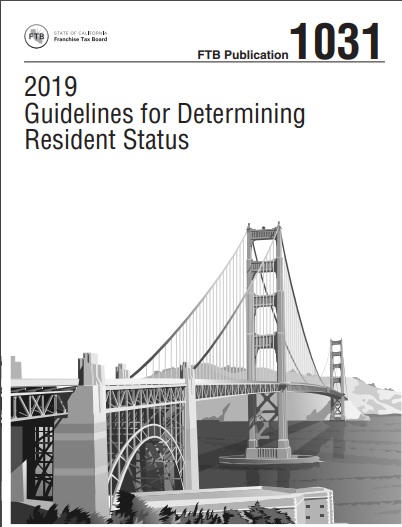
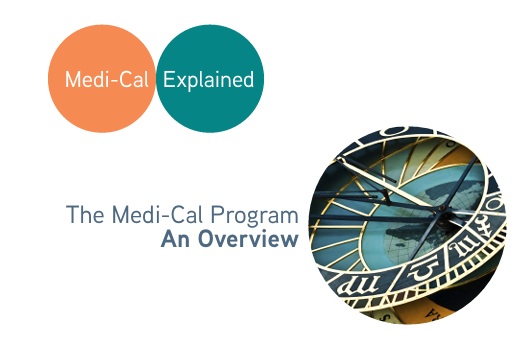

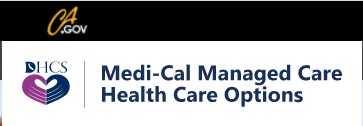

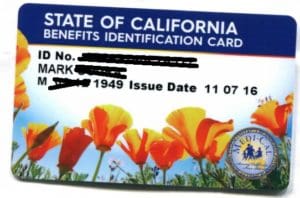
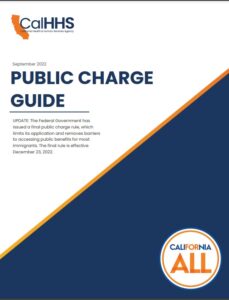
https://www.politico.com/news/2025/07/04/megabill-immigrants-health-care-medicaid-obamacare-00439311
FAQ’s from updated webpages
However, the Blue Cross Application doesn’t ask the question. Maybe the rules have become less stringent since 2014? I will grant that the Confidential Agent Manual for 2016 page 16 uses the term “resident” not lawfully present. The 2016 Blue Cross Direct Page 29 EOC uses the term Reside and not lawfully present. 45 CFR 147.104 (a) Guaranteed availability of coverage in the individual and group market.
Subject to paragraphs (b) through (d) of this section, [Open and Special Enrollment] a health insurance issuer that offers health insurance coverage in the individual, small group, or large group market in a State must offer to any individual or employer in the State all products that are approved for sale in the applicable market, and must accept any individual or employer that applies for any of those products. (e) Marketing. A health insurance issuer and its officials, employees, agents and representatives must comply with any applicable state laws and regulations regarding marketing by health insurance issuers and cannot employ marketing practices or benefit designs that will have the effect of discouraging the enrollment of individuals with significant health needs in health insurance coverage or discriminate based on an individual’s race, color, national origin, present or predicted disability, age, sex, gender identity, sexual orientation, expected length of life, degree of medical dependency, quality of life, or other health conditions.
One not lawfully present has an exemption from the mandat>e.
I’m 65 now and have worked and paid taxes into Medicare for 50 years. I’m not lawfully present. Can I still enroll and not risk getting deported?
See this page for the Answer
Hello sir,
can you please advise me with this question and what I have to do.
I am applying for medical and I am a married man ,but my wife and kids are not here at this time
do I have to fill as married filling jointly or separately for my household and is there any difference between both?
Thank you so much.
1st off, we only get compensated when you choose us as your broker, no extra charge. Are you willing to do that?
2nd – Are you talking about Medi-Cal for low income – see chart or Covered CA with Subsidies?
Get Covered CA Quote & subsidy calculation, no extra charge for our service, help and expertise.
Here’s our webpage on the mandate for Covered CA subsidies to file jointly.
Where are your wife & kids?
Is there a concern about the public charge rule?
When you file taxes, will you be showing your family as dependents?
Here’s the tax guide for aliens # 519
So, if you want Covered CA Subsidies, you must file jointly.
There are some exceptions…. Why isn’t your family here?
Here’s the definition for Medi-Cal
At the end of the year, when you file taxes, how will your family show up?
What is your MAGI Income? Foreign Income?
Get the quote, answer the questions and if we can be your agent, we’ll do the rest of the research.
You’ve come to the right site, if you want research backed up with a citation to the actual law or rule. Over the phone, you’re likely to get just a wild guess.
After you get the quotes and respond on your tax filing, MAGI income, etc. If you want to do a Zoom or Skype meeting with screen sharing, you can set a time here
https://steveshorr.com/intro/set-a-meeting/
See the commentary here, about how confusing these questions can get and my own CPA along with Covered CA say to ask your own tax professional.
See our webpage on reporting foreign income
65 paid into Medicare, not lawfully present. What happens? https://medicare.healthreformquotes.com/sign-medicare/rules-get-part-hospital-medicare-no-charge/#comment-25168
I have a Mexican Passport and USA Permanent Residency Green Card. Do I need a visa to visit Peru and return to USA?
Do I need a Tourist Visa for Peru?
In general citizens of the countries in the listing below do NOT have to apply for a visa at an embassy or consulate before entering Peru.
Below listed countries can get a tourist visa at airport immigrations or any other Peruvian border without applying for it at an embassy or consulate
North America: Citizens of the United States, Canada and Mexico
Travelers need a passport valid at least half a year with at least 2 free pages in the visa section when entering Peru.
The maximum stay in Peru on a tourist visa is 183 days (per year)!
You can’t extent your tourist visa once you entered Peru!
foreign visitors must have a return or onward ticket /passage when entering the country. While this law isn’t enforced by Peruvian immigrations, airlines often demand to see a return or onward ticket when checking in for a flight to Peru. https://www.limaeasy.com/peru-info/peruvian-visa#tourist-visa-peru
https://cibtvisas.com/requirements
embassyofperu.org/los-angeles
Mr. Ricardo Romero Talledo
[email protected]
The embassy website refers one to this website https://www.peru.travel/en-us/
[youtube https://www.youtube.com/watch?v=-ahnJtRIv4w&w=560&h=315%5D
me and my wife are only visitors with tourist visa,
she is currently pregnant in last months,
my income in another country is about 70 thousand US dollar per year.
she is not working, family size 4.
so can we apply for any option for maternity services,
because it is very expensive in California,
$70k when looking at the Covered CA Income Chart appears to qualify your wife for the MCAP Medi-Cal Access Program – Pregnant Women
However, all the programs, private direct coverage, Covered CA and Medi-Cal require permanent residency, which it doesn’t appear you have under a USA Visitor Visa’s nor does it meet Federal or State Requirements 45 CFR 155.305 intends to reside or seeking employment Our webpage on Residency – CA Franchise Tax Board # 1031
You might try International Travel Policies – but be careful of Pre X existing condition clauses
How about going back to your home country? I hope it’s safe and not war-torn.
I’m not an immigration attorney, nor salaried Medi-Cal eligibility worker, you might want to follow the links above to double check.
I appreciate your comprehensive and conclusive answer, still I am searching for travel or international insurance with maternity coverage for current pregnancy, because we have twins and I preferred to receive care here in USA.
Did you click on the link and review what we have with Insubuy?
I’m checking, but I doubt I’ll find anything.
What kind of a premium would you be willing to pay, being as there is such a short time till delivery, the estimated cost for twins is $105K per CBSNews.com citing the American Journal of Obstetrics & Gynecology.
While the ACA – Obamacare is mandated to cover maternity, there is still the Medical Loss Ratio which means the Insurance Company keeps 20% of the premium and pays out 80%.
Thank you sir for detailed explanation. Appreciate your compassion.
I will arrange for self payment.
Thanks again
LA Times article on Chinese come in and have their babies
But it didn’t really mention anything about how they’re paying for the maternity cost
http://www.latimes.com/local/lanow/la-me-ln-birth-tourism-persists-20161220-story.html
More on birth tourism
http://www.medicaltourismmag.com/
Here’s the answer on insbuys website
They say that basically no coverage is available
https://steve.brokersnexus.com/
Wikipedia on birth tourism
https://en.wikipedia.org/wiki/Birth_tourism
Off exchange plans may not require lawfully present documentation on the part of the prospective health plan member. Any plan sold through the exchange and eligible for APTC can only be sold to lawfully present individuals that can provide proof. Eligibilty conditions for enrollment in a specific health plan can usually be found in the carrier’s Evidence of Coverage.
Thanks. We appreciate comments and clarification from other knowledegable brokers.
I have my lady I’ve been with for 25 years that has a social security number …but her immigration status wasn’t fixed…….I am getting the adjustment of lpr [lawful presence?] filed this week….we got married on the dec 31….she’s been here for 35 years. ..
I need to get her real coverage….I was stuck overseas and just came back yesterday!!!
What can I do? Help…. she has a cancer…..
If you want subsidies in Covered CA, send us proof of her lawful presence. If you can pay full pop – we can do it outside of Covered CA at open enrollment. Click here for quotes.